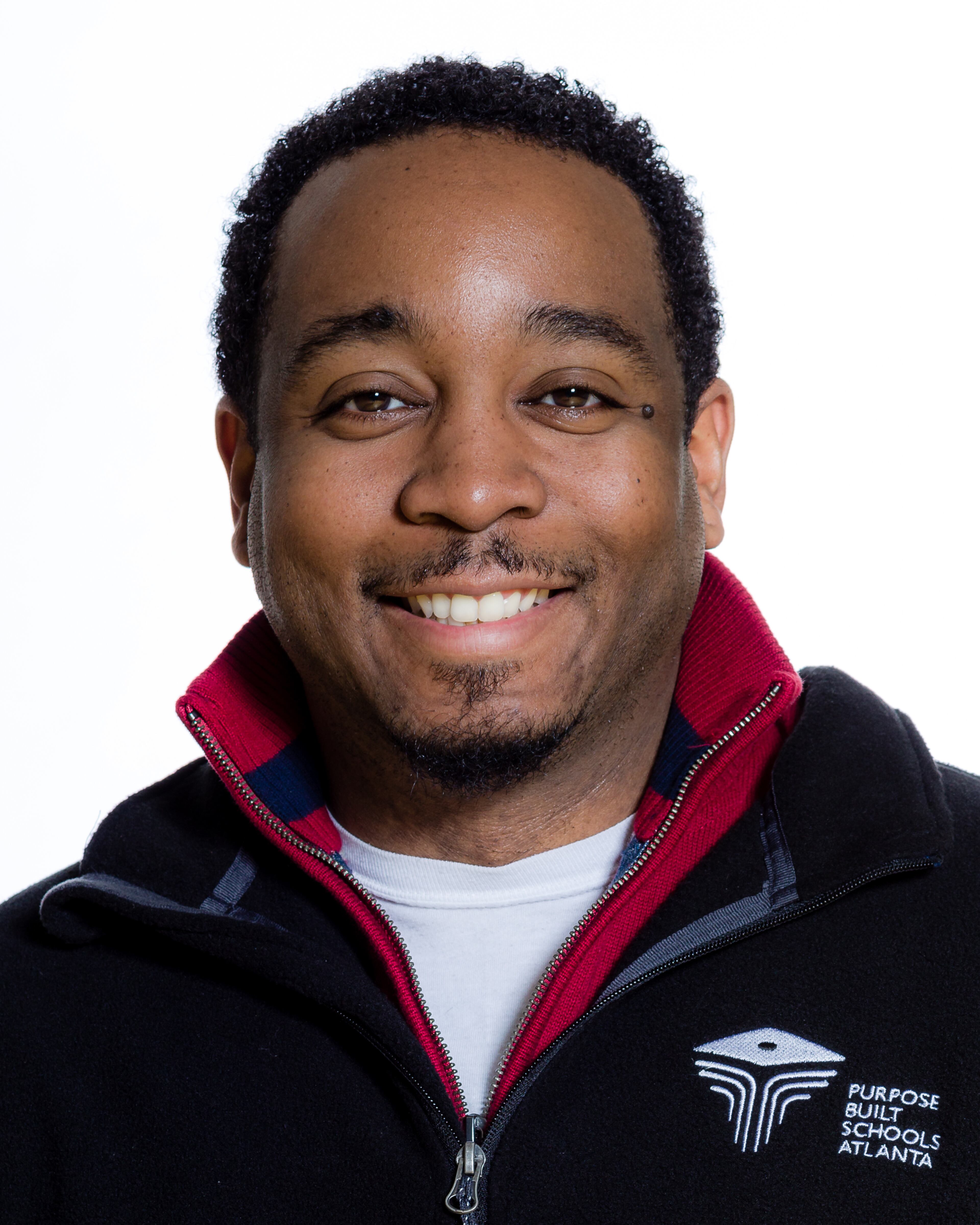Opinion: Atlanta turnaround model puts students on path to success

Jovan Miles is the principal of Thomasville Heights Elementary School. In a guest column today, Miles talks about the benefits of the partnership between Thomasville and Purpose Built Schools Atlanta.
The partnership was assailed as a tilt by APS toward privatization in a recent essay by Verdaillia Turner. Turner is president of 1,700-member Atlanta Federation of Teachers.
Atlanta's partnership with Purpose Built Schools broke new ground for both APS and Georgia. As the AJC's Vanessa McCray has reported:
Hiring outside groups to run public schools is a unique approach in Georgia and rare across the country, where similar partnerships have popped up in the last five to 10 years — mostly in urban districts looking to turn around troubled schools. The Georgia Department of Education said no other districts in the state are using the partner model.
In his essay, Miles speaks to what he considers several misperceptions about Thomasville and Purpose Built. Miles has worked in elementary and middle schools, traditional public schools, charter schools and alternative education programs for 15 years. He has served communities in metro Atlanta as a paraprofessional, mathematics teacher, instructional coach, state school improvement specialist, assistant principal and principal.
By Jovan Miles
Income mobility in Atlanta for poor African Americans is among the worst in the United States. Without effective schools, many students in south Atlanta struggle to break free of the circumstances they were born into.
I am the principal at Thomasville Heights Elementary School. Many of our students are caught in the cycle of generational poverty that can lead to lifelong trauma. Decades of systemic racism and structures designed to deny African Americans access to opportunity have resulted in a large percentage of the families at our schools living in neighborhoods with limited resources and sometimes dangerous situations.
James Baldwin once said, “Not everything that is faced can be changed. But nothing can be changed until it has been faced.” Our schools are working with the local community to face the systems that have prevented students from having full access to the opportunities they deserve.
It was incumbent on us to try something different. That’s why Atlanta Public Schools created the partnership school model.

APS transitioned the management of Thomasville Heights Elementary, Slater Elementary, Price Middle and Carver STEAM Academy--some of the district’s lowest-performing schools in some of the state’s lowest-income neighborhoods--to Purpose Built Schools Atlanta. I am gratified that the measurable results of the partnership model and our whole-child approach demonstrate that we are putting students on a path to success.
When Purpose Built Schools partnered with APS, three of our four schools were among the lowest performing four percent of all schools in the state. But since our organization intervened, students at three out of four Purpose Built Schools have made year-over-year growth in achievement in Georgia Milestones scores.
Transiency -- the percentage of students who leave our schools during the academic year -- is down by 20%. The longer a student stays at the same school, the better they perform over time. Attendance has increased by four percent and disciplinary incidents have decreased by 32% across the elementary schools in our organization.
Our teachers are among the best educators with whom I’ve had the pleasure to work. The average teacher with Purpose Built Schools has 10 years of experience and was selected to work with us based on a combination of technical skill and disposition. It isn’t enough for us that a teacher knows content; they must also accept the responsibility to provide an emotionally safe and culturally responsive learning environment for our students.
Our academic programs leverage a Project Based Learning framework that allows students to learn the Georgia Standards of Excellence by solving problems that matter to them. Our classes focus on small group instruction and intensive, personalized academic and social emotional interventions.
We provide students with the opportunity to take six to eight enrichment classes per academic year. Depending on the campus, students may have access to foreign languages, chess, robotics, engineering, choral music, and instrumental music alongside the usual offerings of visual arts and physical education.
Unlike a charter school, we enroll every student who lives in our attendance zone following the same process as all other neighborhood APS schools. Our schools are funded using the same funding formula as other APS schools.
As partnership schools, we have the flexibility to raise additional funds -- and have raised roughly $15 million in just three-and-a-half years -- to supplement our whole-family and comprehensive community engagement program.
Many of our students lack consistent access to all the essentials needed to ensure they are ready to learn. Housing instability, limited or no healthcare resources, and poor or unavailable early learning opportunities can make it difficult for many students to meet academic standards. Moreover, many of our students have had few, if any, enrichment opportunities outside of school.
We work with more than 60 community partners to tackle these barriers, offering after school and summer programs, mental health services, mentorship and enrichment opportunities. Through our community engagement program, 500 students have participated in after-school and summer programs, 300 students have received mental health and housing services, and 280 students have taken part in mentorship and internship programs.
School systems need incubators for new ideas. That’s what Purpose Built Schools is for APS. We are using an innovative mix of approaches to improve historically failing schools in some of the most challenging of circumstances. If we’re successful, APS will be able to apply the model and methods that worked at these schools across the system.
While early signs point to the viability of our model, we recognize that we still have much work to do to ensure that positive student outcomes occur consistently and that those outcomes are sustained over time. The students and families we serve deserve nothing less.

